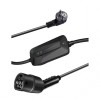In general, traders may agree to any terms of sale and purchase as they think fit. However, transactions involving the sale of goods are subject to special controls, such as those imposed by the Sale of Goods Ordinance ('SOGO') and Control of Exemption Clauses Ordinance ('CECO'). This text focuses on the issues that a trader should pay attention to in relation to SOGO.
The following is designed for general reference only, and is not an exhaustive statement of the law on the topic.
What is a Sale of Goods?
It is a transaction in which the seller transfers the ownership in the goods to the buyer for a monetary return. Not all items for sale are goods. However, goods include nearly all tangible personal property, such as inventory. They exclude intangible property such as copyrights and trademarks, as well as specific categories of tangible property such as money, land, buildings, and shares.
SOGO governs every contract for the sale of goods. Such a contract may either be a sale of goods or an agreement for the sale of goods. In a sale, ownership in the goods is transferred from the seller to the buyer immediately. In an agreement for sale, the seller only agrees to transfer ownership at a future date. The agreement will then generally be followed by a sale.
What is meant by ownership?
If you have ownership over something, you have the maximum extent of rights over it. You can sell it, lease it, or do whatever you like with it. Nobody has a better claim over the thing than you do. But ownership is different from possession. If you merely have possession over something, you only have the right to keep it for the time-being, until the owner demands that you to return it to him. Unless the owner agrees, you may not sell the thing, lease it, or damage it. For example, if you hire a car, you may have possession of the car for a day, but the ownership remains with the rent-a-car company.
What is a term?
A term is a provision in a contract. It can be express or implied. Express terms are what the parties have expressly agreed, in writing or orally. Implied terms may be implied from the parties' conduct or by the law, such as by SOGO. In general, a term may be a condition or a warranty.
A condition is an essential term of a contract, which goes to the root of the contract. For instance, if you are buying a Rolls Royce, the term that the seller has to sell you a Rolls Royce, and not a Toyota, is a condition.
A warranty is a less essential term of a contract. For instance, that the colour of the Royce Royce has to be silvery grey may be a warranty.
Unless the law otherwise requires, the parties to the contract may agree between themselves which terms are conditions and which terms are warranties.
What if I breach a term?
The remedies available to the other party vary depending on whether you have breached a condition or a warranty.
If you breach a condition:
The other party has two options:
Option One : He may treat the contract as at an end and claim compensation (legally known as 'damages'). He does not need to perform his side of the bargain, e.g. he does not have to pay the price. The amount of damages usually equals the difference between the prevailing market price and the contract price. Therefore, damages may not be worth suing for if the contract is made at the market price.
Option Two : He may choose to still perform his side of the bargain and then claim damages. The amount of damages usually equals the difference between the value of the goods and the value they would have had if they had satisfied the condition.
However, if a buyer has accepted the goods, his only option is Option 2.
If you breach a warranty:
The other party is only entitled to claim damages. He must still perform his side of the bargain. The amount of damages usually equals the difference between the value of the goods and the value they would have had if they had satisfied the warranty. Damages may not be worth suing for if the difference is negligible, e.g. difference in colours of a car may not affect the price very much, if at all.
When does a buyer accept the goods?
Acceptance is not the same as merely taking delivery of the goods. A buyer accepts the goods only when:
• He tells you that he has accepted them after having an opportunity to examine them;
• He does some act which is inconsistent with your ownership of the goods e.g. he sells them, after having an opportunity to examine them; or
• He retains the goods for more than a reasonable time without telling you that he has rejected them.
If the buyer is buying in the course of business, he may agree to forgo the opportunity to examine the goods; but he may not if he is buying as a consumer.
What is meant by buying/selling in the course of business?
This in general means that the trader enters into similar transactions with some degree of regularity. It excludes, for instance, a private individual who sells in a one-off transaction.
How does SOGO protect the buyer?
No 1. In every contract for the sale of goods
It is an implied condition that the seller must have the right to sell the goods at the time of sale. If he does not, he cannot transfer ownership to the buyer.
It is an implied warranty that the goods are free from charges and encumbrances not disclosed or known to the buyer.
No 2. In every contract for the sale of goods where the seller sells in the course of business:
The following conditions are implied:
• Merchantable quality: the goods are of merchantable quality. This means that having regard to their descriptions, price, and other relevant circumstances, the goods are reasonably up to standard. However, this does not cover situations where
• The seller specifically draws the defect to the buyer's attention before the contract is made;
• The buyer examines the goods before the contract is made and the examination ought to have revealed the defect; or
• If the sale is a sale by sample, a reasonable examination of the sample ought to have revealed the defect.
• Fitness for Purpose: if the buyer informs the seller that he is buying the goods for a particular purpose, then in general the goods must be reasonably fit for that purpose.
No 3. In every contract of sale by description:
A contract of sale by description occurs where the buyer has no opportunity to examine the goods before the contract is entered. Instead, he is only allowed to read a description of the goods. For instance, if he is buying canned fruits, he cannot examine the fruits inside the can. He decides to enter into the contract by relying on the descriptions on the label.
In such contract, it is an implied condition that the goods shall correspond with the description.
No 4. In every contract of sale by sample:
A contract of sale by sample may occur where the buyer has no opportunity to examine the goods before the contract is entered. Instead, he is only allowed to examine a sample. For the implied conditions to apply, the contract must state that it is a contract of sale by sample.
The following conditions are implied:
• The goods should correspond with the sample;
• The buyer shall have a reasonable opportunity to compare the goods with the sample; and
• The goods shall be free from any defect which render them unmerchantable, unless the defect is apparent on reasonable examination of the sample.
Can I exclude these provisions?
If you are selling in the course of business to a person who is buying as a consumer, you cannot exclude any of the above provisions. However, if you are selling to a buyer who is buying in the course of business, you may exclude protections Nos. 2, 3 and/or 4 if he agrees. However, note that the exclusion is still subject to the CECO. Briefly, it means the exclusion of liability is not effective unless it is fair and reasonable having regards to all the circumstances.
When is ownership transferred?
Transfer of ownership may not be concurrent with transfer of possession. For example, you may wish to transfer possession to the buyer tomorrow, but reserve ownership over the goods to yourself until, for example, he pays the price.
When ownership passes has important consequences. For instance, where the buyer becomes bankrupt after the goods are delivered but before he pays the price, if ownership has already passed to him, then you can only claim the contract price as an unsecured creditor, and usually you will only get a fraction of the contract price back. On the other hand, if you are still the owner of the goods, you may immediately demand the return of the entire quantity of the goods.
In general, the parties can decide between themselves when ownership is to be transferred. However, goods must be ascertained before their ownership can be transferred. Goods are ascertained only if you can point to a specific bulk of goods and say only that exact bulk can satisfy the contractual obligation. If the goods are not ascertained, then the goods must first be ascertained before ownership can be transferred. This can be done, for instance, by segregating them from the rest of the goods in the warehouse.
When does risk pass?
Unless the parties agree otherwise, risk passes with ownership. However, where delivery is delayed through the fault of either party, then the party at fault has to bear the resulting loss.
If risk is transferred to you, you should consider taking out insurance against damage or destruction of the goods. You may not be able to rely on the insurance taken out by the previous owner even though it may cover your period of ownership. Usually, you must be the insurer (have an ownership interest in the goods) in order to claim insurance.
What if I buy the goods from someone who has no right to sell them?
In theory, a seller cannot transfer ownership in the goods to you if he has no right to sell them, e.g. he is not the owner himself, or an agent of the owner. You may sue him for breach of the SOGO implied condition No. 1 above. However, if the real owner sues you for the goods, you must return the goods to him.
However, in practice, the law offers buyers protection. Put briefly, as long as the seller (who has no right to sell the goods) sells the goods to you in his ordinary course of business, and at the time of sale you do not know that the seller does not have the right to sell, then the real owner's ownership is extinguished and you become the new owner.
What if I deliver the wrong quantity to the buyer?
If ownership has been transferred to the buyer, but he does not pay the full price when it becomes due, you may:
• Sue him for the contract price;
• Keep the goods until you are fully paid;
• Resell the goods; and
• If the buyer is insolvent, stop the goods in transit
What if the buyer refuses to accept the goods?
You may sue him for damages for non-acceptance.
What if the seller refuses to deliver the goods?
In general, you may sue the seller for damages. If you have paid the price, you may also reclaim the price.







